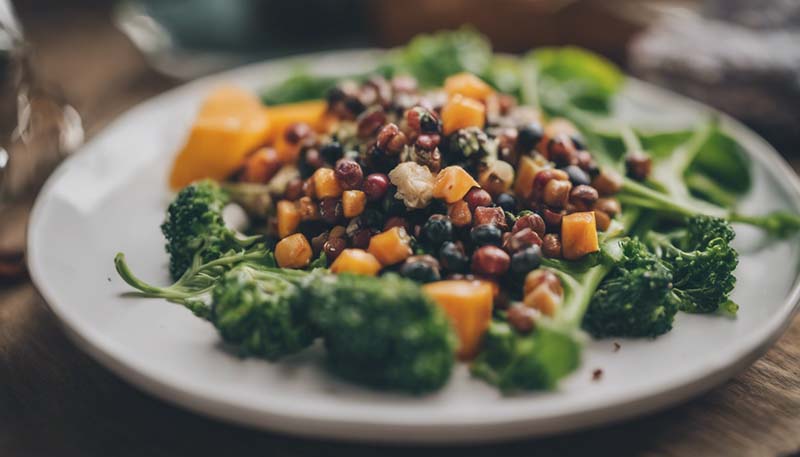Why Your Body Needs Fiber
Learn how fiber can improve your overall health and well-being.
The Role of Fiber in Your Diet
Fiber is an essential component of a healthy diet, but many people don't get enough of it. It's often referred to as the "silent nutrient" because it doesn't provide calories, protein, or vitamins. However, fiber plays a crucial role in maintaining good health.
Types of Fiber
There are two main types of fiber: soluble and insoluble.
- Soluble Fiber: This type of fiber dissolves in water and forms a gel-like substance. It can help lower blood sugar levels by slowing down the absorption of sugar. It also helps lower cholesterol levels by binding to bile salts in the intestine and removing them from the body.
- Insoluble Fiber: Insoluble fiber does not dissolve in water. It adds bulk to your stool and helps prevent constipation by speeding up the movement of waste through your digestive system.
Both types of fiber are important for your overall health, and they can be found in a variety of foods.
Health Benefits of Fiber
Here are some of the health benefits associated with a high-fiber diet:
- Improved Digestive Health: A diet high in fiber can help prevent constipation and diverticulosis.
- Weight Management: Fiber can help you feel full, which may reduce the amount you eat and help with weight management.
- Heart Health: Soluble fiber can help lower cholesterol and reduce the risk of heart disease.
- Blood Sugar Control: Soluble fiber can help control blood sugar levels, which is particularly important for people with diabetes.
- Cancer Prevention: A high-fiber diet may reduce the risk of certain types of cancer, including colorectal cancer.
How Much Fiber Do You Need?
The recommended daily intake of fiber varies by age and gender. In general, women should aim for about 25 grams of fiber per day, and men should aim for about 38 grams per day.
Foods Rich in Fiber
Here are some fiber-rich foods to include in your diet:
- Fruits: Apples, pears, berries, and oranges.
- Vegetables: Broccoli, carrots, and Brussels sprouts.
- Whole Grains: Brown rice, quinoa, and whole wheat bread.
- Legumes: Beans, lentils, and chickpeas.
- Nuts and Seeds: Almonds, chia seeds, and flaxseeds.
Tips for Increasing Fiber Intake
Here are some tips to help you increase your fiber intake:
- Choose whole grains over refined grains whenever possible.
- Add fruits and vegetables to every meal.
- Include legumes in your meals, such as beans, lentils, or chickpeas.
- Snack on nuts and seeds.
- Look for fortified foods that contain added fiber.
Conclusion
Incorporating more fiber into your diet can have numerous health benefits. By choosing a variety of fiber-rich foods and making small, sustainable changes to your eating habits, you can improve your digestive health, manage your weight, and reduce your risk of chronic diseases.






























Leave a comment